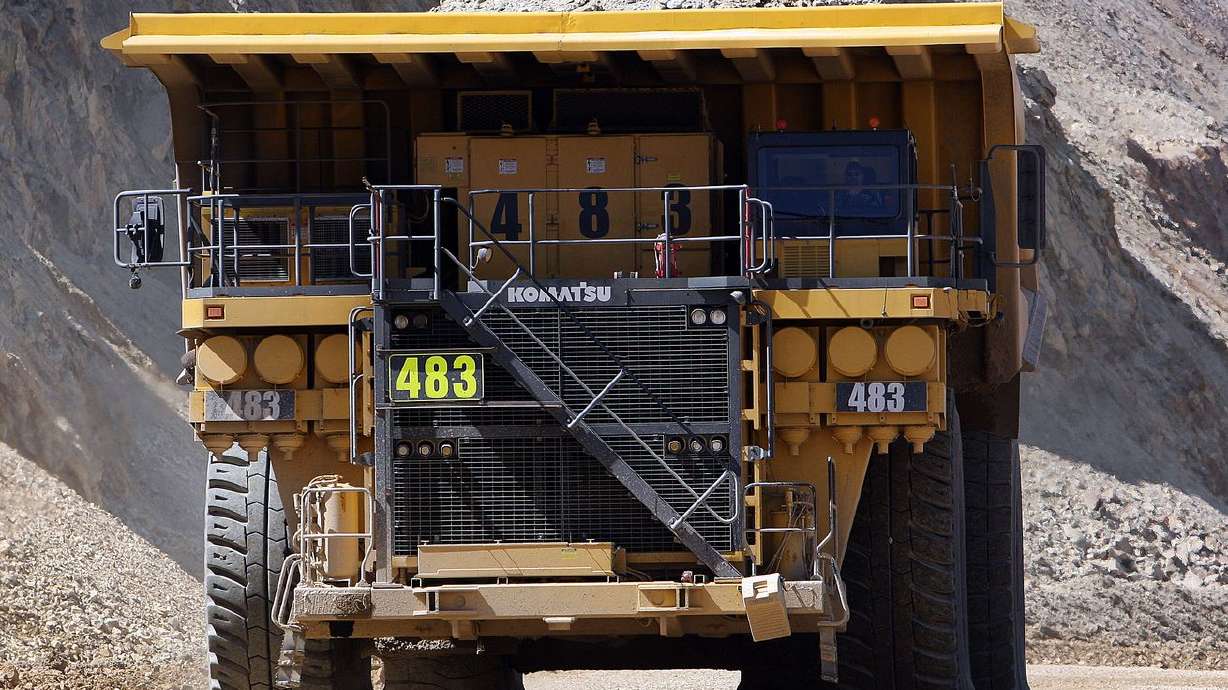Estimated read time: 3-4 minutes
This archived news story is available only for your personal, non-commercial use. Information in the story may be outdated or superseded by additional information. Reading or replaying the story in its archived form does not constitute a republication of the story.
SALT LAKE CITY — A new report by the U.S. Geological Survey says U.S. mines produced $90.4 billion in mineral commodities last year — up $9.7 billion over the year before — and Utah is No. 7 in the country for production.
The state, in fact, is the primary global producer of beryllium, the only domestic producer of magnesium metal, and just one of two states in the country producing lithium used in rechargeable batteries.
Utah lawmakers on Thursday signed off on a resolution acknowledging Utah's unique role to play in the field of clean energy, noting the state has known sources of 28 of the 35 federally listed critical mineral resources necessary in all manner of arenas, including energy production, aerospace, manufacturing and medical.
SCR3 details the state's $3.7 billion in mining production value and underscores Utah's role to play in the Biden administration's push for a clean energy economy and more resiliency in U.S. manufacturing and defense needs.
The resolution emphasized that Utah is a "public lands" state and, as such, is opposed to any landscape scale designations that would limit access to public lands for energy development, mineral extraction and other practices.
In addition, it noted that federal designations of Utah's land and waters without legislative approval is "hostile to state sovereignty" and could hinder efforts by the state and federal government to promote national security and economic prosperity.
Utah is a public lands state, and we stand able and willing to promote mineral extraction and development of energy resources, including renewables, for Utahns and all Americans.
–Rep. Carl Albrecht, R-Richfield
Rep. Carl Albrecht, R-Richfield, the House sponsor of the resolution, told his colleagues the state of Utah needs to make it clear it stands by development of these commodities and said the resolution on minerals got a shoutout by Gov. Spencer Cox in his State of the State address.
"We want to work closely with federal agencies to promote national security," he said. "Utah is a public lands state, and we stand able and willing to promote mineral extraction and development of energy resources, including renewables, for Utahns and all Americans."
Mining necessarily involves a delicate dance in the global pursuit of clean energy technologies — solar panels, wind farms and electric vehicles — and the environmental consequences of tearing up the ground or the ocean. Proponents of domestic mining say it can be done on U.S. soil with more stringent environmental safeguards, absent the use of child labor and less reliance on hostile, foreign markets.
If you like renewable energy, you should love mining. If you like electronics and national security, you should love mining.
–Rep. Ken Ivory, R-West Jordan
"If you like renewable energy, you should love mining. If you like electronics and national security, you should love mining," said Rep. Ken Ivory, R-West Jordan. "To do the renewable energy we are seeing and hearing about takes 23 more times copper, 10 times more rare earth elements."
Ivory added that 90% of that market is dominated by China.
Ten Democrats in the House voted against the resolution, signaling the tension over mineral extraction, use of public lands and environmental protections.
The Biden administration, despite its stated goals of deploying more renewable energy, canceled two leases for copper and cobalt in Minnesota because they were near a wilderness area and rescinded a permit for a new copper mine in Arizona.










